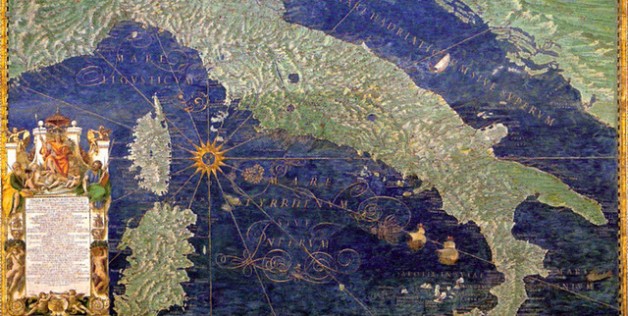Napoleon Bonaparte was a ruthlessly successful military commander and a remarkable civil administrator who sought to reorder European society according to the ideals of the French Revolution. Napoleon was no fool. From 1801-1814, in northern and central Italy, he slyly sought to manipulate the Italian Church to his own advantage. Napoleon’s tactics and the Italian defensive serves to remind us of the distinctive, interactive nature of Church, family, and civil society.
Napoleon, through stringent administrative measures, attempted to inculcate northern Italian parishes with the new and modern rhetoric of the French Revolution. Families, he knew, naturally and frequently gravitated to the Church, and they reinforced the teachings of the Church in their homes with loving devotion. The home is, after all, the domestic church, and the Italians on a whole trusted the Church. Napoleon thought that if parish priests taught the modern ideals of liberty, equality, and fraternity from the pulpit, soon pious families would do the same in the home. As the family goes, so goes society. Napoleon was not blind to the fact that Church, family, and civil society are intrinsically connected. If he could get families to imbibe the ideals of the Revolution, he could undermine the Italian Church from the inside out.
The Italian family – and the Church, too – resisted mightily. The Italians were wiser and more faithful than Napoleon had imagined. Stunned and hateful, he had to resort to more forceful means to prevail. The Italians knew something that both Americans and Europeans could stand to re-learn today: how, and in what way, the “three societies,” as Pope Pius XI called them – Church, family, and civil society – are bound together.
Saint Thomas Aquinas’ teaching on the matter is pertinent. The family – of husband, wife, and children – forms the bedrock of a civilization. Families naturally develop into civil society. The need for sufficiency, or well-being, accounts for the upward movement. While the household provides for the daily necessities of food and shelter, a family needs larger associations for the exchange of goods and services, and this grows exponentially from villages to towns to cities. The city, as Thomas Aquinas explains, is made for living; it’s there that human beings find the sufficiency they need to live well. However, to live well means more than food and shelter. Civil society orders citizens to the virtues, and to live virtuously is to live well.
But human beings don’t automatically possess all the virtues – they must be taught. This instruction happens first and principally in the family when a father and mother teach their children. However, virtue is worthy of the name only if and when it is ordered to the Truth as taught by the Church. As teachers of the Truth, the family imitates the Church, teaching and instructing in the life of virtue. Without the Church, the family falls apart.
Napoleon didn’t stop with mere rhetoric; he wanted to overthrow the Truth. To do so, he attacked the Sacrament of Confession. Why? Priests will tell you: it’s the Truth box. There’s no place more personal and intimate when it comes to reconciling our lives with the Truth than the confessional, and Napoleon knew that. His line should sound familiar to us today: he said Confession violates one’s “fundamental liberties” and “freedom of conscience”. The Italians did not match him slogan for slogan or ideal for ideal – they resisted his onslaught by the humble acknowledgment that without frequent contact with the Truth in the confessional, they were sure to go astray.
The Italian defensive teaches us three things: first, the Truth matters. The Church knows that; Napoleon, who tried to convince the Church that only the ideals of the French Revolution were The Truth, knew that. Secondly, parents are the first teachers of their children, and what is taught in families affects, ultimately and inevitably, the whole of society. Thirdly, if human beings are to be happy and live well, we must be virtuous. And, we can’t live well without the Church – the bride of Jesus Christ – to teach us what is virtuous. Nothing can replace the indispensable role of the Church in society. The deeply Catholic Italians knew this in their bones, and they resisted Napoleon’s cleverly anti-Catholic persuasions. Would that both Europeans and Americans today might learn the lessons history has to teach us.
Image: Galleria delle Carte Geografiche, Map of Italy







